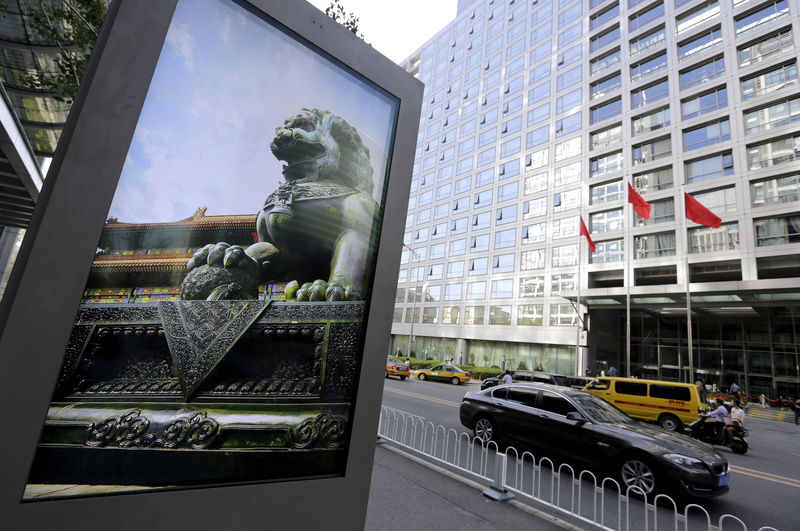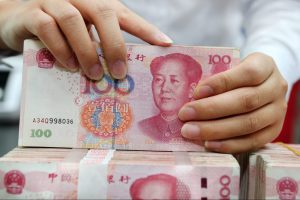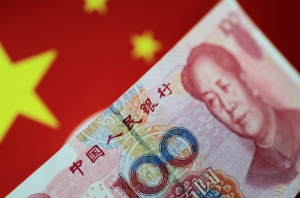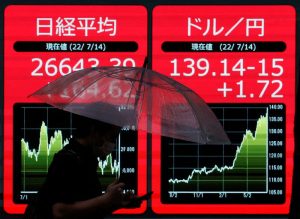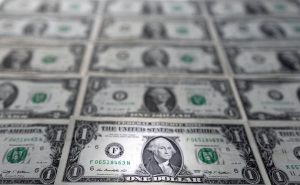(ATF) China’s bond market is mired in a state of somewhat grotesque self-contradiction.
On the one hand there been a full-on opening of doors to foreign participation – from the marquee credit ratings agencies, to the big-hitter investment banks (now able to take sole lead on onshore bond deals) to easy foreign investor participation (anchored in the smooth execution provided by the BondConnect platform).
And the impending inclusion early next year of China debt in the FTSE Russell bond index will serve only to fire up that dynamic, as foreign index tracking funds must start buying China paper, according to some estimates to the tune of US$3.5 billion every month.
Then there was the triumphant return of the Republic to the public offshore debt markets in October after a 16-year absence, in the shape of a $6 billion barnstormer that extended China’s yield curve out to 30 years. Almost no market player sitting in the big offshore financial capitals had seen that one coming.
And another tick in the plus column has been the recent reconciliation of the disparate voices in the country’s big financial regulators on the subject of Green finance into a single chorus thanks to the publication of a Green bond catalogue which aligns China’s ESG taxonomy with the template of the European Union – the global benchmark for arcane, complex, but mammoth matters in relation to economic and capital markets development along sustainable lines.
That seems set to turbocharge China’s already blazingly unstoppable Green bond market as nitpicking foreign ESG investors can play in a market they hitherto shunned on the basis of setting the bar high with regard to internal sustainability guidelines.
On the other hand there has been a recent rash of missed bond coupon payments from state-owned enterprises (SOEs), the most notable of which came from Yongcheng Coal and Electricity Holding Group, one of China’s biggest coal companies, which is staring down cross-default default on 25 bonds representing RMB 26.5 billion ($4 billion) of debt, having skipped an RMB 1 billion coupon payment in early October.
Yongcheng’s skipped coupon followed the same by Huachen Automotive Group (a BMW China JV stakeholder) weeks before, shortly followed by Tsinghua Unigroup, a big state-owned semiconductor company.
There have been swirling stories of malfeasance, perhaps linked to banks and securities companies but the situation is murky. China’s Vice Premier Liu He warned of a crackdown should that be the case, but the upshot has been the suspension of pending bond issuance from many Chinese companies, which were planning to raise a combined $2.4 billion.
The script wasn’t supposed to run like this but the stakes are high. China’s authorities are laser focused on a grand disintermediation exercise, whereby the reliance of the country’s corporate and local government sector on bank lending is ameriolated, with the debt capital markets stepping into the breach and easing Chinese banks’ balance sheets in the process. The country’s banks are estimated to be providers of almost 70% of the credit used by SOEs and local government.
Governance issues
At another systemic level sits the issue of China’s governance – long a burning issue for foreign debt buyers – and a host of matters, ranging from consolidated cash leakage from hold to operating company (and vice versa), lax accounting practice and the stringency of bond indentures. The experience of holders of Asia Aluminum’s payment-in-kind (PIK) US dollar notes of around a decade ago wherein foreign investors wore a 97 cents in the dollar haircut via fast consolidated balance sheet practice still resonates.
As does the ongoing issue of whether Chinese companies will honour keepwell deeds on offshore debt, highlighted earlier this year when administrators on the Peking University Founder Group workout of $1.7 billion on foreign debt indicated they would not prioritise debt backed by these deeds within the capital structure.
How will the jarring contradiction of all the above resolve?
Market watchers are calling for the importation of foreign best-practice in investment banking if Beijing is to successfully pull off its grand disintermediation exercise. But the authorities get that ‘joke’ already and are acting on it.
It may be years before the big foreign investment banking players earn a respectable fee wallet amid the rampant cost-cutting environment of China’s primary debt markets. But they will play the long game and it will eventually come through.
In the meantime, as China begins to walk the talk, it has been engaging in on the subject of ESG, foreign capital will enter China’s debt markets en masse and bring about dynamic transformation. There will be no systemic collapse of China’s banking system or credit markets, even if the assumption of implicit government support – at national or local level – proves to have been a false one.
I suspect the Chinese authorities may be engaging in the employment of free market thinking and the avoidance of moral hazard, but the most likely outcome for the debt service stresses of players such as Yongcheng is an orderly restructuring of outstanding paper.
There will be more to come in China’s sunset industries, such as coal and internal combustion engine vehicle manufacture, as the “Green revolution” kicks off in the country. Idiosyncratic default will become a feature of China’s debt markets, but it will not become systemic. The stakes are too high for that and China has already got the ‘joke’ on numerous levels.
# Jonathan Rogers is founder and CEO of Singapore-based financial public relations company Ostinato Associates. He worked as an investment banker specialising in fixed income and structured products for Nomura and First National Bank of Chicago in London before moving into financial journalism as debt capital markets editor of International Financing Review. He is the author of Opportunities in the Asian Bond Markets and holds a first-class honours degree in politics, philosophy and economics from the University of Oxford.




